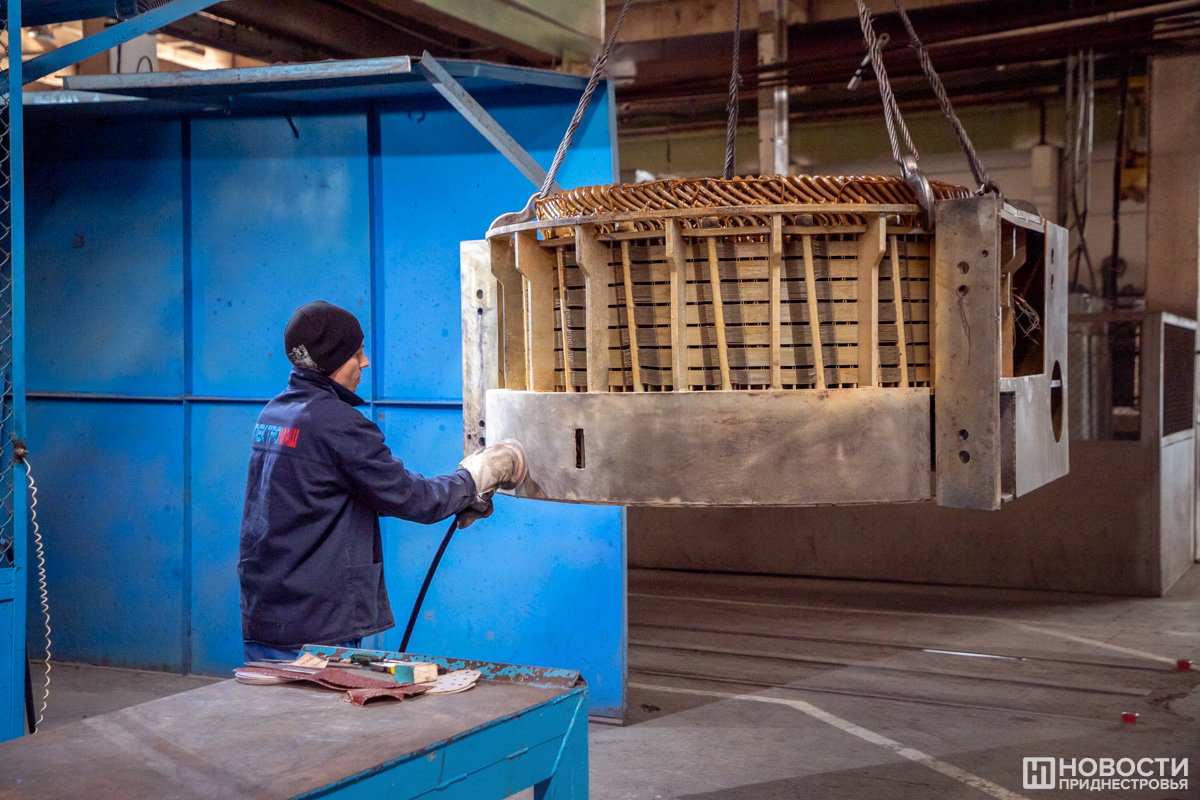Tiraspol, November 13. /Novosti Pridnestrovia/. The Union of Industrialists, Agrarians and Entrepreneurs of Pridnestrovie, as well as other leading public organizations of the republic, will prepare and sign a collective appeal that will be sent to Russia, Ukraine, the USA, the European Union, the leadership of Moldova, the European Parliament and the European Council.
The reason is that Moldova blocks at the customs the export cargo from three Pridnestrovian factories: Elektromash, Moldavizolit and Bendery “Potential”. This has already led to dire consequences for businesses.
As you know, problems with exports suddenly began in the summer of this year. In Moldova, their products were suddenly declared as a dual-use product, that is, one that can be used in the military industry. At the same time, until the summer, the products of all three enterprises did not have any difficulties with passing Moldovan customs.
Chisinau refers to a 2002 government decree of the Republic of Moldova, which determines the possibility of classifying goods as dual-use goods. Representatives of Pridnestrovian enterprises say that this document has long outlived itself, is morally outdated, and taking into account the types of products that are produced at Moldavizolit, Elektromash and Potential, it should not apply to them at all.
Not only Russian experts, but also Romanian specialists from the ANCEX agency say that the goods, which are produced at Moldavizolit for example, are exclusively for civilian purposes.
The Moldovan side also cannot clearly explain by what specific criteria it suddenly classified the products of three Pridnestrovian enterprises as dual-use goods. One gets the impression that this is just an artificial pretext, and the goal, again, may be different - to deal another blow to the economy of the PMR and force Pridnestrovian enterprises to make some kind of concessions.
The fact that the new demands are farfetched is evidenced by some of the answers that are coming from Chisinau today. Moldavizolit, for example, was refused to send goods to Russia with the following interesting wording: “this would harm the security, national interests and foreign policy of Moldova.” That is, it turns out that the motive here is rather political. “This notification indirectly confirms that our products are not dual-use goods,” says the plant representative Alexey Kabanov.
Let us note that the Moldavizolit cargoes heading to Europe are allowed through, albeit partially, by the Moldovan authorities. “Perhaps Moldova wants to report to the West that the bilateral trade with Russia is declining. This may occur, among other things, in the context of the fact that the Republic of Moldova is actively withdrawing from various agreements within the CIS,” does not rule out Dmitry Palamarchuk, the head of the main foreign policy department of the PMR Ministry of Foreign Affairs.
The unclear decision of Chisinau regarding Elektromash, Moldavizolit and Potential could deprive almost 1.4 thousand people of work. And if we take into account families, then, according to the chairman of the Union of Industrialists, Agrarians and Entrepreneurs Yuri Cheban, a total of about 4 thousand people may be left without a livelihood.
“Potential” has stopped production since the end of August - its warehouses are full of finished products. The situation is the same at Moldavizolit: the plant sent almost 600 workers into forced downtime since October 11.
From August to November, Elektromash dispatched only 25% of the planned volume of supplies. “We have colossal financial losses, as well as image losses in front of our partners. We are losing our reputation as reliable suppliers and cannot form a portfolio of orders for 2024. The markets where we operate are highly competitive, and our products are quickly replaced by other companies. The employment of the team and the retention of specialists are at risk,” said Vladimir Trandasir, General Director of Elektromash.
The head of Potential, Petr Guzhev, added that 13 high-quality machine operators have already quit at his plant. It will be difficult to find a replacement for them.
Pridnestrovian enterprises sent letters to the head of the EU delegation to Moldova, the leadership of the government of the Republic of Moldova, and the ambassadors of Russia and the United States to Moldova. The American embassy responded: its representative visited all three factories, made a detailed tour, and was shown the workshops, equipment and finished products. “He agreed that it was necessary to send a commission to the production to issue an expert opinion that our products are not dual-use cargo,” said Moldavizolit representative Alexey Kabanov at a meeting of the Union of Industrialists, Agrarians and Entrepreneurs of Pridnestrovie today.
But so far the visit of the American diplomat had no effect: the situation has not improved in any way.
Since August, the Ministry of Economic Development of the PMR has been working closely both with the affected enterprises themselves and with their foreign counterparties so that Elektromash, Moldavizolit and Potential do not fall under additional financial sanctions. According to the First Deputy Minister Alevtina Slinchenko, all three plants will pay taxes in installments; they will not pay income and unified social taxes on idle payments. The Ministry of Economic Development is ready to listen to all proposals for state support for enterprises in order to prevent the loss of their production capacity.
But, of course, international mediators also need to intervene in the situation. As stated by the chairman of the Union of Industrialists, Agrarians and Entrepreneurs of Pridnestrovie, Yuri Cheban, Moldova, among other things, violates the Association Agreement with the EU, which talks about a sustainable resolution of the issue around Pridnestrovie, as well as improving the business environment, simplifying trade and customs procedures, and ensuring non-discriminatory administration. It turns out that Chisinau is not fulfilling all this, and its relations with Pridnestrovie are only heating up.








